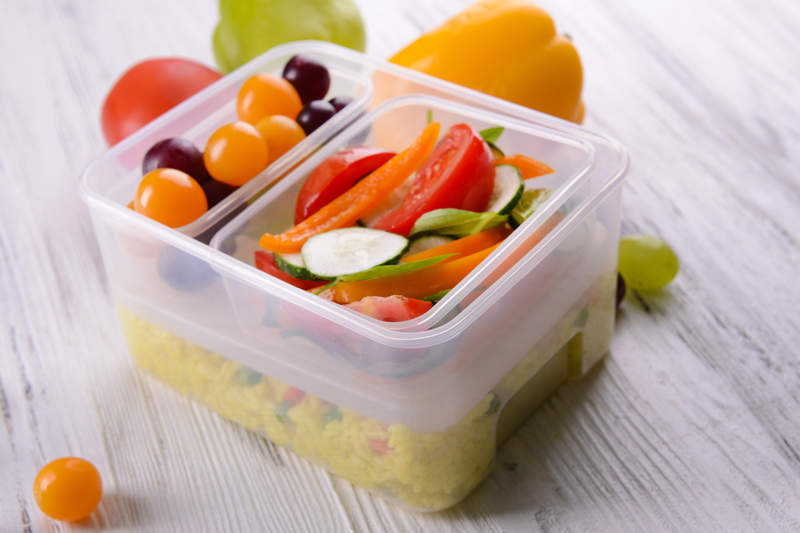Plant-Based Plastics: Evolution & Future
Posted on 03/05/2025
In recent years, environmental sustainability has become a critical global issue. One key area undergoing significant transformation is the realm of plastics. Traditional plastics made from petroleum are being scrutinized for their ecological footprint. As a solution, plant-based plastics, also known as bioplastics, have gained attention. This article will delve into the evolution and future of plant-based plastics, exploring their history, development, current status, and where they are headed.
The Evolution of Plant-Based Plastics
Early Beginnings
The concept of using natural materials to create plastics is not new. In the early 20th century, efforts were made to manufacture plastics from biobased materials. Perhaps the most notable is Henry Ford's soybean-based plastic car in the 1940s. However, the onset of World War II and the subsequent development of petroleum-based plastics shifted focus away from bioplastics.
The Rise of Modern Bioplastics
The late 20th century witnessed a resurgence in interest in bioplastics due to increasing awareness of environmental issues such as plastic pollution and climate change. Advances in biotechnology and materials science have enabled the development of more efficient and versatile plant-based plastics. Companies began exploring renewable resources like corn starch, sugarcane, and cellulose to produce bioplastics.

Current State of Plant-Based Plastics
Types of Plant-Based Plastics
Today, there are several types of plant-based plastics, each with distinct properties and applications:
1. Polylactic Acid (PLA): Derived from fermented plant starch, PLA is used in packaging, disposable tableware, and 3D printing.
2. Polyhydroxyalkanoates (PHA): Produced by bacterial fermentation of sugars and lipids, PHAs are used in medical applications and packaging.
3. Starch Blends: These are miscible blends of starch and other biodegradable polymers used in packaging and agricultural films.
Applications and Market Penetration
Plant-based plastics are increasingly being adopted across various industries. Packaging is a major application area, with companies like Coca-Cola and Danone incorporating PLA into their product lines. The use of bioplastics in agriculture for mulch films and controlled-release fertilizer coatings is also growing. In the medical field, PHA is used for sutures, implants, and drug delivery systems.
The Future of Plant-Based Plastics
Innovations on the Horizon
The future of plant-based plastics looks promising, driven by ongoing research and innovation. Scientists are exploring genetically modified crops that yield higher bioplastic precursors and developing new biopolymer synthesis methods. Moreover, ongoing advancements in microbial engineering are enabling more efficient production processes.
Market Growth and Challenges
The market for plant-based plastics is expected to expand rapidly, with estimates suggesting it could reach $100 billion by 2030. However, several challenges need addressing, such as production costs, scalability, and performance under varying environmental conditions. Overcoming these challenges will require coordinated efforts in research, policy-making, and industry collaboration.
Pros and Cons of Plant-Based Plastics
Pros
1. Environmental Benefits: Reduced carbon footprint and biodegradability make plant-based plastics more environmentally friendly than their petroleum-based counterparts.
2. Renewable Resources: Utilize renewable materials such as corn, sugarcane, and potatoes, reducing reliance on fossil fuels.
3. Reduced Pollution: Less persistent in the environment, thus contributing to lower pollution levels.
Cons
1. Cost: Production costs are currently higher than traditional plastics, which can be a barrier to widespread adoption.
2. Performance: Some bioplastics may not perform as well as conventional plastics in terms of strength and durability.
3. Resource Use: Large-scale production of bioplastics could lead to competition for land and water resources used in food production.
Tips for Using Plant-Based Plastics
1. Research the Manufacturer: Ensure that the bioplastics come from reputable sources and are certified for their biodegradability.
2. Consider the Application: Choose the type of bioplastic that best suits your needs, whether it's for packaging, agricultural use, or medical applications.
3. Stay Informed: Keep up with the latest advancements and innovations to make informed decisions.

Key Takeaways
1. Plant-based plastics have evolved significantly from their early beginnings and have a promising future.
2. There are various types of plant-based plastics, each with specific applications and benefits.
3. While advantages overshadow disadvantages, challenges such as cost and performance must be addressed.
4. Innovations in biotechnology and materials science will drive the future growth of bioplastics.
Conclusion
The shift towards plant-based plastics represents a significant step in addressing global environmental challenges. While there are hurdles to overcome, the future holds immense potential for these sustainable alternatives. As innovation continues to push boundaries, plant-based plastics are poised to play a crucial role in a more sustainable and eco-friendly future.
Latest Posts
Innovations Aiming to Reduce Ocean Waste
Reducing Waste in Christmas Celebrations




 020 3743 9508
020 3743 9508


